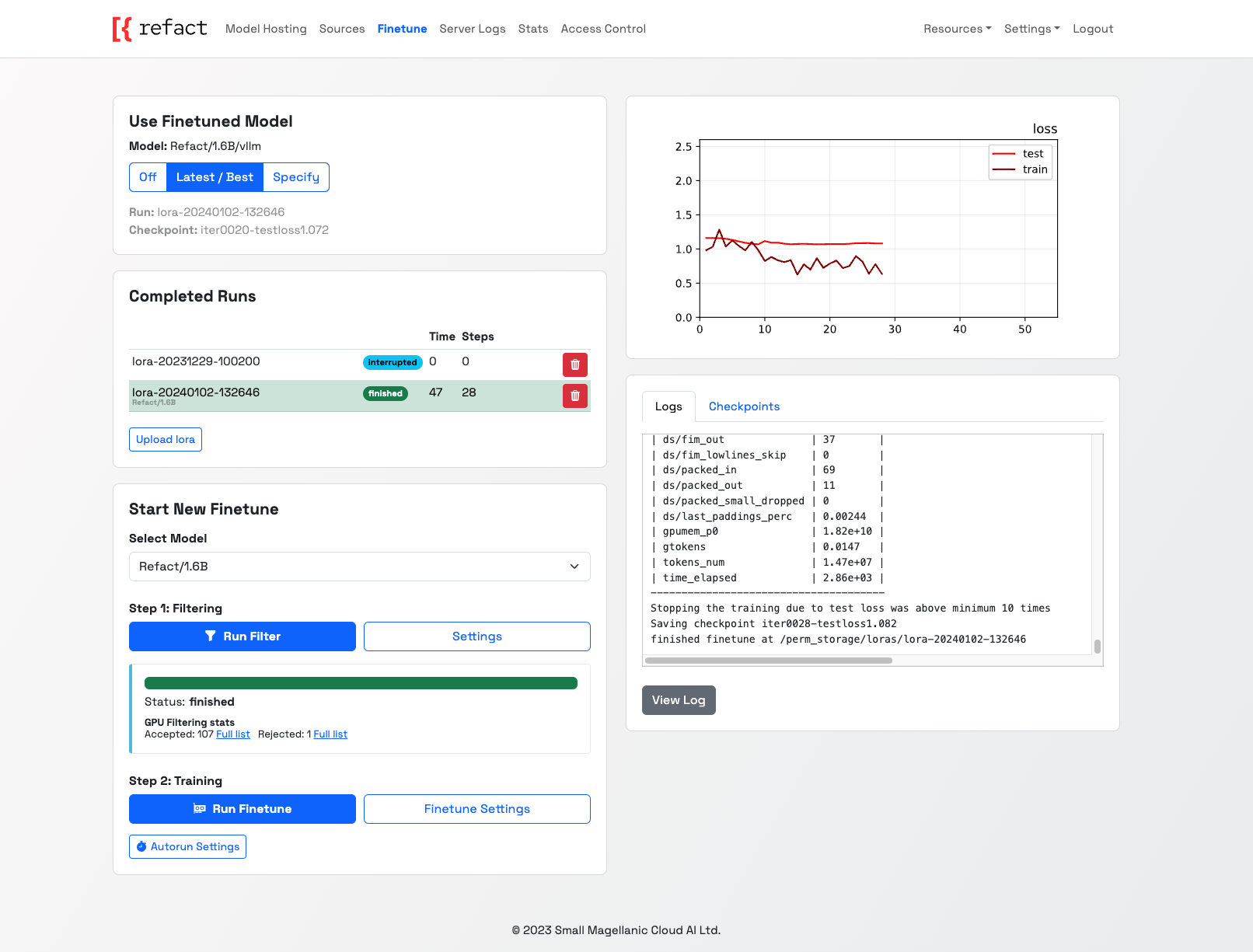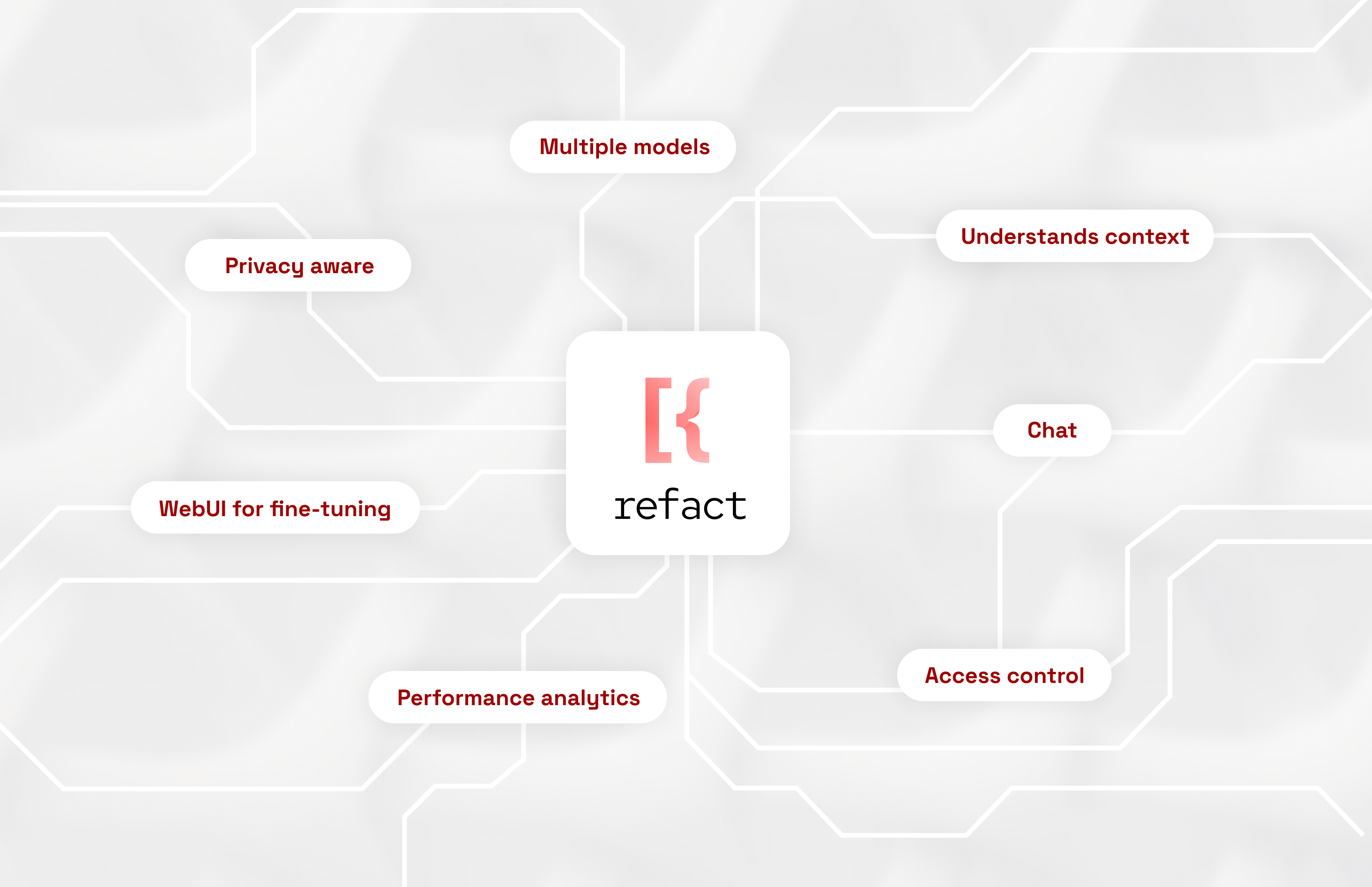In 2021, Oleg Klimov, Vlad Guber and Oleg Kiyashko set out to co-create a platform, Refact.ai, that could convince more companies to embrace GenAI for coding by affording users more customization — and control — over the experience.
Klimov and Kiyashko had worked together for nearly a decade building AI-based systems for image recognition and security systems. Guber knew Kiyashko from childhood; they were neighbors in the South Ukrainian town of Yuzhnoukrainsk.
“It was clear that AI would change the very notion of what engineering is,” Klimov told TechCrunch in an email interview. “As software engineers at heart, we decided we need to be in the best position to live through it — creating an independent system for software engineering.”
Most devs acknowledge the AI-driven seismic shifts occurring in their profession. Eighty-two percent responding to a recent HackerRank poll said that they believe AI will “redefine” the future of coding and software development.

The majority are embracing the change, with 63% of devs in VC firm HeavyBit’s 2023 survey saying that they’re now using GenAI in coding tasks. But employers are more skeptical. In a separate survey of enterprise C-suite and IT professionals, 85% expressed concerns about GenAI’s privacy and security risks.
Companies, including Apple, Samsung, Goldman Sachs, Walmart and Verizon, have gone so far as to limit internal use of GenAI tools over fears of data compromise.
So how’s Refact different? It runs on-premise, Klimov says.
Like GitHub Copilot, Amazon CodeWhisperer and other major GenAI coding assistants, Refact can answer natural language questions about code (e.g. “When was this dependency last updated?”), recommend lines of code and fine-tune to improve its performance with a given codebase.
“One way to think about it is as a ‘strong junior engineer,’” Klimov said, “or an artificial co-worker on a team that’s productive but needs supervision.”
However, unlike many — if not most — of its competitors, Refact doesn’t need an internet connection. It doesn’t even upload basic telemetry data, Klimov claims.

“We’re developing better controls and processes around sources and uses of data, security and privacy as we’re aware of the challenges that [enterprises] face and want to ensure the integrity of our customers’ information and innovative breakthroughs,” Klimov said.
Powering Refact’s platform are compact, code-generating models trained on permissively licensed code — another key competitive advantage, Klimov claims. Some code-generating tools trained using copyrighted or otherwise restrictively licensed code have been shown to regurgitate that code when prompted in a certain way, posing a potential liability risk for the companies deploying them (at least according to some IP experts).
Vendors like GitHub and Amazon have introduced settings and policies aimed at allaying the fears of companies wary of the IP challenges around their GenAI coding tools. But it’s unclear that they’ve made much headway. In a 2023 survey of Fortune 500 businesses by Acrolinx, nearly a third said that intellectual property was their biggest concern about the use of generative AI.
“We used permissive licence code to train [our models] because our customers demanded it,” Klimov said.
Refact’s privacy- and IP-conscious approach helped it raise $2 million in funding from undisclosed investors — and net ~20 pilot projects with enterprise customers. Klimov claims that the platform, which is also available in a cloud-hosted plan that starts at $10 per seat per month, is revenue-generating and currently on track to earn “a few million” annually by this summer.
That’s impressive, considering vendors like GitHub have struggled to make a profit on their code-generating tools. Copilot was reportedly costing GitHub parent Microsoft up to $80 per user per month as a result of the associated cloud processing overhead.

The focus for the London-based, eight-person Refact team in the near future is upgrading Refact to run code autonomously, execute “multi-step” plans and self-test code.
“We’re actively working on a next-generation AI assistant – one that’ll debug the code it writes and operate on any large codebase,” Klimov said. “We’re well-funded internally and have the necessary capital to continue building the product … We’ve never benefited from an abundance of funding or from the venture capital frenzy that took place in previous years, but what’s really benefited us is the availability and eagerness of very talented people who are looking to join the AI revolution — and who saw in Refact as a place to thrive and develop something that can have a lasting impact.”































Comment